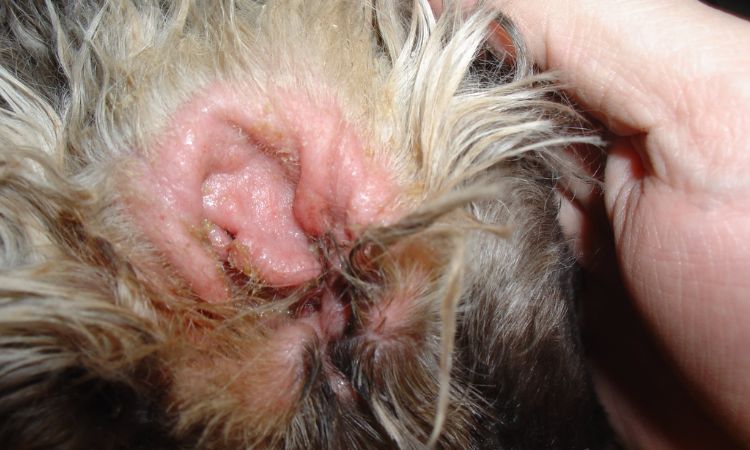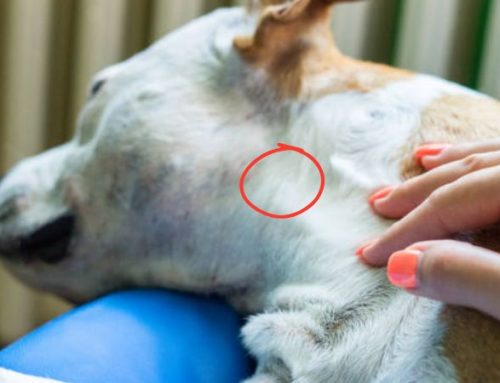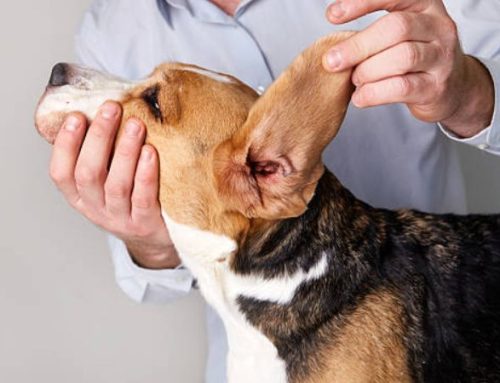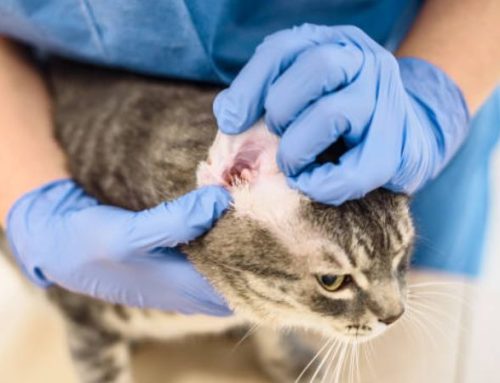There’s something almost hypnotic about the way dogs shake their heads one moment they’re prancing happily, the next they’re flipping their ears like tiny windmills. While an occasional shake is usually just a dog’s way of brushing off a little itch or water, persistent or intense head shaking can signal that something more serious is going on.
From ear infections to hidden allergies or even foreign objects lurking in the ear canal understanding why your dog is shaking its head is the first step toward keeping them healthy, happy, and comfortable.
Understanding Head Shaking in Dogs
Head shaking is a common canine behavior, but not all head shaking is created equal. Understanding the difference between normal and abnormal head shaking is key to ensuring your dog’s comfort and health.

Normal Head Shaking
Dogs naturally shake their heads to remove minor irritants, such as water after a bath, a small piece of grass, or dust in their ears. These shakes are usually brief, occur infrequently, and your dog quickly returns to normal behavior. Occasional head shaking, especially after physical activity or swimming, is generally considered harmless.
Abnormal Head Shaking
Persistent, vigorous, or sudden head shaking can indicate an underlying health problem. Signs that head shaking is abnormal include:
- Frequency and Intensity: Shaking that occurs repeatedly throughout the day or night, or is forceful enough to toss the ears and body.
- Night-Time Episodes: Dogs shaking uncontrollably during sleep or at unusual times may be experiencing pain, irritation, or neurological issues.
- Accompanying Symptoms: Redness, swelling, discharge, foul odor, pawing at ears, loss of balance, or tilting the head.
Abnormal head shaking can stem from conditions such as ear infections, ear mites, allergies, foreign objects lodged in the ear canal, water trapped in the ears, inflammatory or autoimmune disorders, or neurological problems. Left untreated, continuous head shaking may result in complications such as ruptured blood vessels in the ear flap (aural hematomas), chronic infections, or hearing loss.
Importance of Monitoring
Careful observation of your dog’s head shaking is essential. Note the frequency, duration, time of day, and any associated behaviors. Video recordings can be helpful for your veterinarian to assess the severity and possible cause. Early detection and intervention not only relieve your dog’s discomfort but also prevent more serious complications.
Common Causes of Dog Head Shaking
Frequent or vigorous head shaking in dogs can be more than just a quirky habit—it often signals discomfort or an underlying health issue. Understanding the potential causes is essential for early intervention and preventing complications.
Ear Health
Ear Infections (Yeast or Bacterial)
Ear infections are one of the most common reasons dogs shake their heads. Both yeast and bacterial infections can lead to itching, redness, swelling, discharge, and sometimes a foul odor. These infections can affect the outer ear or the deeper ear canal, which may not always be visible without a veterinary exam. Untreated infections can cause chronic pain, worsening inflammation, or even hearing damage.
Water Trapped in the Ears
Dogs who love swimming or those that get a lot of baths can develop water trapped in their ear canals. Moisture creates the perfect environment for bacterial and yeast growth, leading to discomfort and head shaking. Preventative measures include placing cotton balls in the ears during baths or swims, avoiding direct water over the head, and gently drying ears afterward. For dogs that resist cotton balls, your veterinarian may recommend ear bands or safe drying solutions.
Ear Mites and Other Pests
Ear mites, tiny parasitic insects, can infest a dog’s ears, causing intense itching, dark crumbly discharge, and persistent head shaking. While less common than infections, ear mites are highly contagious between pets and require prompt veterinary treatment. Other pests, such as ticks, may also irritate the ear area, though they are less frequently lodged inside the ear canal.

Allergies
Allergies are another frequent trigger for head shaking. Dogs may develop reactions to certain foods or environmental elements like pollen, mold, dust mites, or household chemicals. Allergic reactions often manifest in the ears first, but other symptoms may include:
- Persistent itching or scratching
- Red, inflamed, or flaky skin
- Licking or chewing their paws
- Rubbing their face or head
If your dog exhibits these signs along with head shaking, it’s important to consult a veterinarian to determine whether a food trial, allergy testing, or other interventions are necessary.
Foreign Objects & Irritants
Curious dogs often encounter foreign objects that become lodged in the ear, leading to immediate irritation and repeated shaking. Common culprits include:
- Grass seeds or burrs from outdoor play
- Dirt, sand, or small stones
- Household substances like powders or cleaning residues
If you suspect a foreign object, visually inspect the ear gently without poking or probing deeply. Attempting to remove an object yourself can push it further into the ear canal or cause injury. Persistent or deeply lodged objects should always be removed by a veterinarian, who can ensure safe extraction and prevent complications like infections or hematomas.
When Head Shaking Signals Something Serious
Head Shaking Combined with Seizure-Like Behavior
If your dog’s head shaking is accompanied by uncontrolled movements, trembling, or behaviors resembling a seizure—such as sudden jerking, loss of coordination, or stiffness—this may point to a neurological condition. Vestibular disease, for example, can cause abrupt loss of balance, head tilting, or disorientation, while other neurological disorders may trigger tremors that look similar to head shaking. Unlike typical head shakes, these movements are involuntary and may require veterinary neurologist evaluation.
Uncontrollable or Severe Shaking
Excessive, continuous, or forceful head shaking can cause tissue damage, including ruptured blood vessels in the ear flap (aural hematomas), which may necessitate surgical correction. Dogs shaking their heads uncontrollably—sometimes described as “dog head shaking seizures”—should be examined promptly to determine the underlying cause and prevent further injury.
Additional Warning Signs to Watch For
Head shaking that is accompanied by other symptoms may indicate a serious underlying condition. Signs to monitor include:
- Lethargy or unusual fatigue
- Loss of balance, stumbling, or difficulty walking
- Discharge from the ears, which may be yellow, brown, or bloody
- Foul odor coming from the ear canal
- Pain responses, such as whining, pawing at the ears, flinching, or withdrawing from activity
If you notice any combination of these warning signs with head shaking, it is critical to contact your veterinarian immediately. Early diagnosis and treatment can prevent complications such as chronic infections, hearing loss, or severe neurological issues.
Home Remedies for Mild Head Shaking
1. Gently Clean Your Dog’s Ears
Excess wax, dirt, or debris can contribute to mild head shaking. Cleaning the ears carefully can provide relief:
- Use a vet-approved ear cleaning solution or medicated wipes specifically designed for dogs.
- Apply the solution into the ear canal or use a cotton ball soaked in the cleaner.
- Massage the base of the ear gently to help loosen debris.
- Wipe away any excess cleaner from the outer ear.
- Important: Never use cotton swabs inside the ear canal, as this can push debris deeper and cause injury. Avoid home remedies like vinegar, hydrogen peroxide, alcohol, or coconut oil—they can worsen inflammation.
2. Prevent Water Exposure
Water trapped in the ears from bathing or swimming is a common trigger for head shaking:
- Place cotton balls in your dog’s ears before baths or swimming (use half a ball for small breeds).
- Avoid spraying water directly on the head. Wash the body from the neck down and gently wipe the ears and face with a damp cloth.
- If your dog resists cotton balls, a vet-approved drying solution or an ear band can help prevent moisture accumulation.
3. Manage Allergies
Allergies—both food-related and environmental—are another common cause of mild head shaking:
- Identify potential triggers, such as pollen, mold spores, dust, or certain ingredients in food.
- At-home management may include switching to a limited-ingredient diet or using hypoallergenic treats.
- Clean your dog’s environment regularly to reduce exposure to airborne allergens.
- Monitor for other allergy symptoms: itching, paw licking, hair loss, or rubbing at the face.
4. Monitor Symptoms Closely
Even when using home remedies, careful monitoring is key:
- Track the frequency and intensity of head shaking. Mild occasional shakes are generally safe, but persistent or vigorous shaking may indicate infection or another underlying issue.
- Look for warning signs that require veterinary care: redness, swelling, foul odor from the ears, discharge, lethargy, loss of balance, or signs of pain.
5. When to Use Home Remedies and When to Seek Veterinary Care
- Use home remedies: Occasional, mild head shaking without visible infection, pain, or severe discomfort. Relief methods include gentle ear cleaning, keeping ears dry, and managing minor allergies.
- Seek veterinary care immediately: Continuous or intense head shaking, presence of blood or discharge, a foul smell from the ears, or any accompanying symptoms like loss of coordination, seizures, or signs of pain.
6. Practical Advice for Dog Owners
- For mild irritation, a few drops of vet-approved ear cleanser once daily for a short period may ease discomfort.
- Preventative measures like keeping ears dry and maintaining clean, allergen-free environments can reduce recurrence.
- Avoid home remedies that are too harsh or invasive; these can worsen the condition.
Tip: If your dog shakes its head a lot despite home care, or if you notice additional signs like paw chewing or ear redness, make an appointment with your veterinarian. Early intervention prevents minor issues from escalating into serious ear infections or aural hematomas.

When to Seek Professional Help
1. Signs It’s Time to Visit the Vet
Seek professional care immediately if you notice any of the following:
- Persistent or repetitive head shaking that continues over hours or days.
- Vigorous or uncontrollable shaking, especially if accompanied by signs of discomfort, pain, or distress.
- Nighttime head shaking or shaking that occurs when your dog is resting, which may indicate deeper ear infections or neurological problems.
- Visible ear abnormalities, such as redness, swelling, foul odor, or discharge.
- Other warning signs like lethargy, loss of balance, paw chewing, rubbing the face, or signs of ear pain.
- Accompanying systemic symptoms, including fever, vomiting, or seizures.
Prompt attention is essential because untreated ear conditions can lead to ruptured blood vessels, aural hematomas, or hearing loss, and underlying systemic or neurological issues may worsen over time.
2. Diagnosing Complex Cases
Veterinarians use a combination of physical examinations and diagnostic tools to determine the root cause:
- Otoscopic exam: Allows vets to look deep into the ear canal for infections, debris, or foreign objects.
- Microscopic analysis or culture: Identifies bacteria, yeast, or parasites such as ear mites.
- Allergy testing or food trials: Helps determine if environmental or dietary allergens are causing head shaking.
- Neurological evaluation: Used if head tremors or other abnormal movements are suspected, to rule out conditions like seizures or vestibular disorders.
Complex or recurrent cases may require a combination of these tests to ensure an accurate diagnosis and effective treatment plan.
3. What Information to Provide Your Vet
Providing detailed observations can speed up diagnosis and make the visit safer and more effective:
- Frequency and duration of head shaking (how many times per day, and how long each episode lasts).
- Time and context of episodes (after bathing, during play, at night, etc.).
- Visible symptoms in and around the ears, including redness, swelling, discharge, odor, or scratching behavior.
- Other health changes such as appetite, energy level, vomiting, balance issues, or paw chewing.
- Previous treatments or home remedies tried, including ear cleansers, antihistamines, or dietary adjustments.
This information allows your veterinarian to pinpoint the underlying cause quickly, determine whether the issue is minor or serious, and start the appropriate treatment before complications arise.
See more:
- Effective Dog Ear Infection Treatment: From Home Remedies to Vet Care
- Poodle Ear Infections: Symptoms, Treatments & Prevention for Happy, Healthy Ears
- Broken Ear Cartilage in Dogs: Symptoms, Treatment & What Every Dog Owner Needs to Know
If your dog’s head shaking is persistent, severe, or accompanied by other concerning symptoms, a professional veterinary evaluation is essential. Early intervention prevents worsening of infections, pain, and potential complications while ensuring your dog stays comfortable and healthy.






